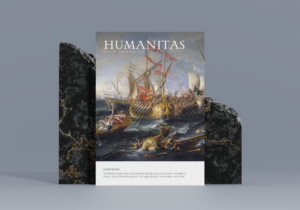

“You think too much.”
It’s a phrase every deep thinker has heard at some point—sometimes as a joke, sometimes as criticism, often as a dismissal. In a world that values quick opinions, snap decisions, and immediate results, taking time to think carefully can be seen as a weakness. If you pause before answering, weigh different perspectives, or question what seems obvious, you risk being labelled as “pretentious,” “out of touch,” or “overcomplicating things.”
But what if deep thinking isn’t a flaw, but a rare and valuable skill in a society that prioritises speed over wisdom? What if, instead of being a burden, the ability to step back, reflect, and engage with complex ideas is exactly what the world needs more of?
History’s greatest minds—Socrates, Shakespeare, Newton, Augustine—were all accused of “overthinking.” And yet, their ideas shaped civilisation. In this post, we’ll explore why deep thinking is not just important, but essential in an era of noise, distraction, and reactionary decision-making.
The World Moves Fast—But at What Cost?
We live in a world that rewards speed. The faster you respond, the quicker you form an opinion, the better. Social media, 24-hour news cycles, and instant messaging have conditioned us to react rather than reflect. Posts go viral in seconds, decisions are made in minutes, and public debates shift in the time it takes to refresh a feed. In this kind of environment, deep thinking can feel not only unnecessary but inconvenient.
But quick answers aren’t always the right ones. When decisions are made without careful thought, they often lead to unintended consequences. Political policies passed in haste create long-term instability. Companies chasing short-term gains make choices that harm them in the long run. Public debates reduced to soundbites leave no room for nuance, leading to more division than understanding.
Take, for example, the way misinformation spreads online. A dramatic headline, a misleading statistic, or a manipulated video can shape public perception before the truth even has a chance to catch up. Without critical thinkers—people willing to pause, investigate, and challenge assumptions—the world becomes more susceptible to reactionary thinking, fear-driven decisions, and intellectual shallowness.
The question, then, is not whether deep thinking is outdated—it’s whether we can afford to live in a world without it.
The Value of Deep Thinkers in Society
Throughout history, the greatest advancements in philosophy, science, politics, and literature have come from those who refused to accept easy answers. Socrates was condemned for questioning societal norms. Newton spent years obsessively studying the laws of motion. Shakespeare explored the depths of human nature in ways no playwright had before. These figures were not celebrated for their quick opinions—they were known for their ability to think deeply, challenge assumptions, and change the world.
The same is true today. Every major issue—ethics in artificial intelligence, climate change, global security, bioethics—demands thinkers who can see beyond surface-level debates. Deep thinkers provide more than just opinions; they offer clarity, foresight, and wisdom in moments when the world is rushing toward simple solutions.
Consider how philosophy shapes law and ethics, how history informs government policies, or how literature helps us understand the human condition. Without those willing to ask the hard questions, societies risk making decisions based on impulse rather than insight. The future doesn’t just need fast talkers—it needs careful thinkers.
So if you’ve ever been told that you “think too much,” maybe the world actually needs more people like you.
Why Studying at Campion College Strengthens Deep Thinking
In an era where universities are increasingly focused on job training and specialisation, Campion College stands apart. Here, education isn’t just about memorising facts or passing exams—it’s about engaging with the biggest ideas that have shaped civilisation and learning to think with depth, clarity, and purpose.
At Campion, small class sizes and discussion-driven learning mean that students don’t just sit in lectures taking notes—they grapple with ideas, challenge perspectives, and refine their arguments in real conversations with peers and professors. Whether debating the ethics of free will in philosophy, unpacking historical turning points, or exploring the timeless themes of great literature, Campion students learn how to analyse, articulate, and defend complex ideas—skills that are essential in any field.
The focus on studying Great Books ensures that students engage directly with the most profound thinkers in history— Plato, Aristotle, Augustine, Aquinas, Cicero, , Dante, Shakespeare, Pascal, Descartes, Hobbes, Locke, Rousseau, Kant, Nietzsche, and Chesterton, to name a few(!)—rather than relying on simplified summaries or textbooks. This depth of study cultivates intellectual independence, moral reasoning, and the ability to see the bigger picture in an increasingly fragmented world.
At Campion, deep thinking isn’t dismissed—it’s encouraged, nurtured, and valued.
Why the World Needs Deep Thinkers Now More Than Ever
In a time when opinions are formed in seconds and decisions are made at the speed of a scrolling feed, deep thinking is more valuable than ever. The world doesn’t just need people who can react quickly—it needs those who can reflect, analyse, and see beyond the immediate moment.
Instead of asking “Am I thinking too much?”, ask “What happens if no one thinks deeply at all?” Without deep thinkers, we risk a society that values convenience over truth, reaction over understanding, and speed over wisdom.
At Campion College, deep thinking isn’t an afterthought—it’s at the core of everything we do. If you’re looking for an education that challenges, inspires, and prepares you to engage meaningfully with the world, you’ll find it here.
Discover more about studying at Campion College and why the world needs more thinkers like you.



